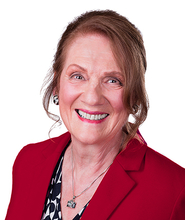One Person’s Thoughts Before Going to the Polls

At election time, I often think of my mother whom I dearly miss. She would often complain that all candidates were alike. They would promise something to get elected, but rarely follow through on their promises. Even when they did follow through, with all good intentions, they often caused more harm than good anyway.
If you feel the same way, don’t be discouraged. In some provinces including Alberta and Ontario, there is another option available to you for expressing your opinion at the polls.
Before deciding, take these thoughts into account.
THE ROLE OF GOVERNMENT IN AN IMPERFECT WORLD
What most people want from government is protection of their lives and property from criminals, an objective set of laws applied equally to each individual in our court system, and protection of our way of life through the protection of our borders. Governments, by definition have a monopoly on the use of force, which may be necessary in the apprehension of criminals or in military resistance to invasion.
GOING BEYOND THE BASICS
Beyond these three most commonly agreed functions of government, Members of Parliament have the power to create laws that may or may not coincide with your value systems and force you to pay for things you would not voluntarily subscribe to. They might also restrict your ability to act in your own best interest or compel you to do things that go against your principles.
While you may be able to challenge some laws in court, it is extremely difficult and expensive to do so. Fighting laws disrupts your life in the process, and in almost all cases, governments and their representatives cannot be held accountable for their actions.
Their legislation has a powerful impact not only during their stay in office, but for generations to come. And, although technically, you can “fire” your politicians by not re-electing them to office next time, you are for the most part, unable to reverse or seek retribution for any harm done while they were in office.
WHAT ABOUT EQUALITY?
Equality before the law is a sound premise because it implies universally applicable principles such as “Thou shalt not aggress against thy neighbour” which in turn implies respect for both individual and property rights.
Given that a perfect world is not possible, the best we can hope for from our governments is that they keep this premise in mind when passing new legislation. Humans are imperfect. We have prejudices; we make mistakes and must accept the consequences; we have different ideas about how to raise our children and who to do business with. We have different aspirations in life and different skills, talents and willingness to set and work toward goals of self-improvement. Our desire to help others shows itself in our voluntarism and our willingness to look out for each other.
When an elected official attempts to legislate such values, he or she is essentially saying that you don’t know what you’re doing but somehow, he or she knows better than you what’s best for you.
We’ve seen science fiction movies and read books about that, and seen the consequences of such ideologies in communist countries, and in countries where there is no separation of church and state. Democracy, though imperfect, is our moderating influence against these dangers.
THE LESSER OF EVILS IS NOT YOUR ONLY OPTION
A more practical approach might be to vote for the candidate whose policies cause the least harm and are the most easily reversed should they prove otherwise.
Vote for your core beliefs and values to the degree that’s possible and don’t confuse popularity with competence.
If you have egalitarian beliefs – the belief that we can create a perfect world through legislated redistribution of wealth and by allowing the state to take precedence over individual rights, then you will have at least one candidate to vote for.
If you believe that the best a government can do is to try to fine-tune legislation and with any luck minimize damage to the economy and to our individual lives and careers, then you also have at least one candidate to vote for.
THE THIRD OPTION
In Alberta (and Ontario), you can decline your ballot and it will be counted, not as a “spoiled” ballot, but as a legitimate vote that says that you are not satisfied that any of the candidates effectively reflect your principles. Mom appreciated that option and so do I.
If you choose the latter option, your returning officer may or may not be familiar with the process for doing that. So make sure you insist on seeing with your own eyes that your declined ballot is not dropped into the regular ballot box but in a separate box designed specifically for the purpose.
Then get back out there and hustle some business.






